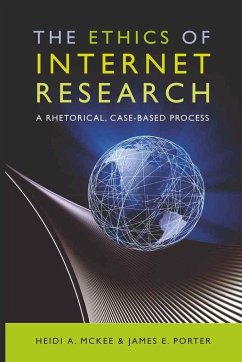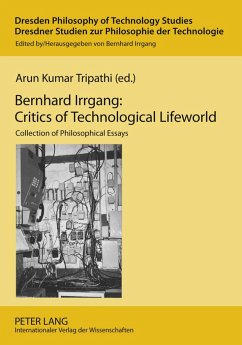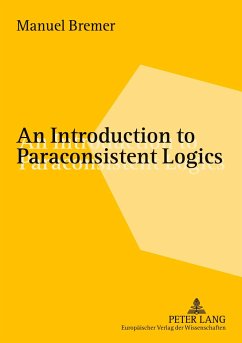
Trust and Virtual Worlds
Contemporary Perspectives
Herausgegeben: Ess, Charles; Thorseth, May
Versandkostenfrei!
Versandfertig in 6-10 Tagen
39,15 €
inkl. MwSt.

PAYBACK Punkte
0 °P sammeln!
Trust is essential to human society and the good life. At the same time, citizens of developed countries spend more and more time in virtual environments. This collection asks how far virtual environments, especially those affiliated with «Web 2.0», challenge and foster trust? The book's early chapters establish historical, linguistic, and philosophical foundations for key concepts of trust, embodiment, virtuality, and virtual worlds. Four philosophers then analyze how trust - historically interwoven with embodied co-presence - may be enhanced through online environments. Final contributions...
Trust is essential to human society and the good life. At the same time, citizens of developed countries spend more and more time in virtual environments. This collection asks how far virtual environments, especially those affiliated with «Web 2.0», challenge and foster trust?
The book's early chapters establish historical, linguistic, and philosophical foundations for key concepts of trust, embodiment, virtuality, and virtual worlds. Four philosophers then analyze how trust - historically interwoven with embodied co-presence - may be enhanced through online environments. Final contributions tackle the specific challenges of virtual child pornography and democratic deliberation online.
This is the first collection devoted exclusively to the philosophical dimensions of trust and virtual worlds. It helps bring the reader up to date on the relevant concepts and issues, and on ways in which widely ranging insights and approaches may nonetheless cohere into a reasonably comprehensive account of trust.
The book's early chapters establish historical, linguistic, and philosophical foundations for key concepts of trust, embodiment, virtuality, and virtual worlds. Four philosophers then analyze how trust - historically interwoven with embodied co-presence - may be enhanced through online environments. Final contributions tackle the specific challenges of virtual child pornography and democratic deliberation online.
This is the first collection devoted exclusively to the philosophical dimensions of trust and virtual worlds. It helps bring the reader up to date on the relevant concepts and issues, and on ways in which widely ranging insights and approaches may nonetheless cohere into a reasonably comprehensive account of trust.












